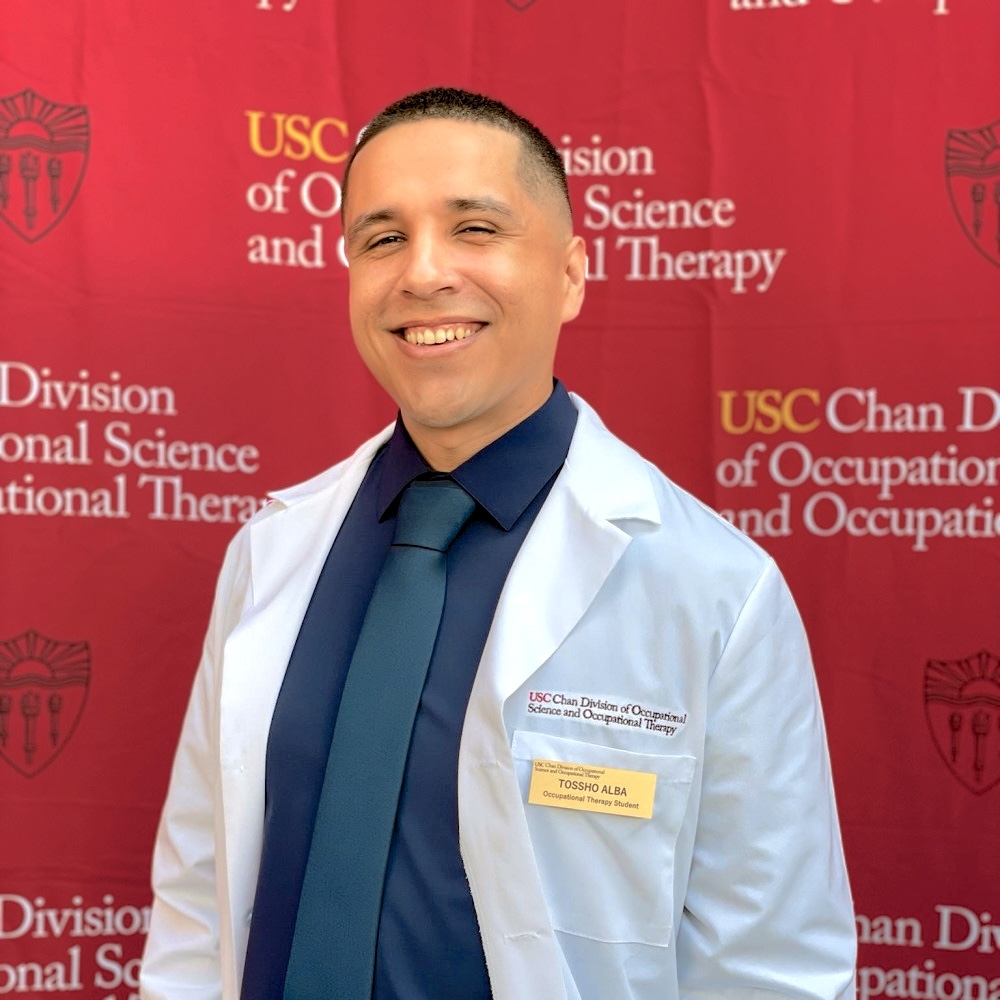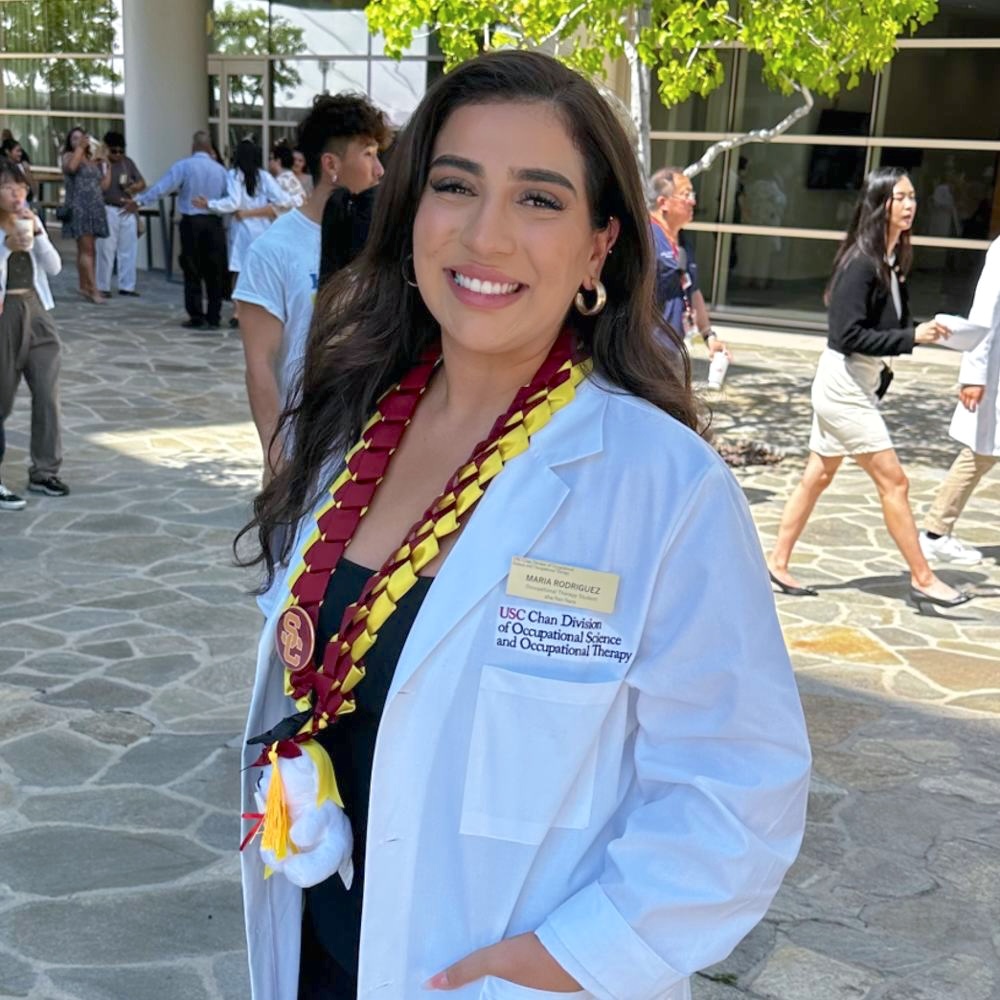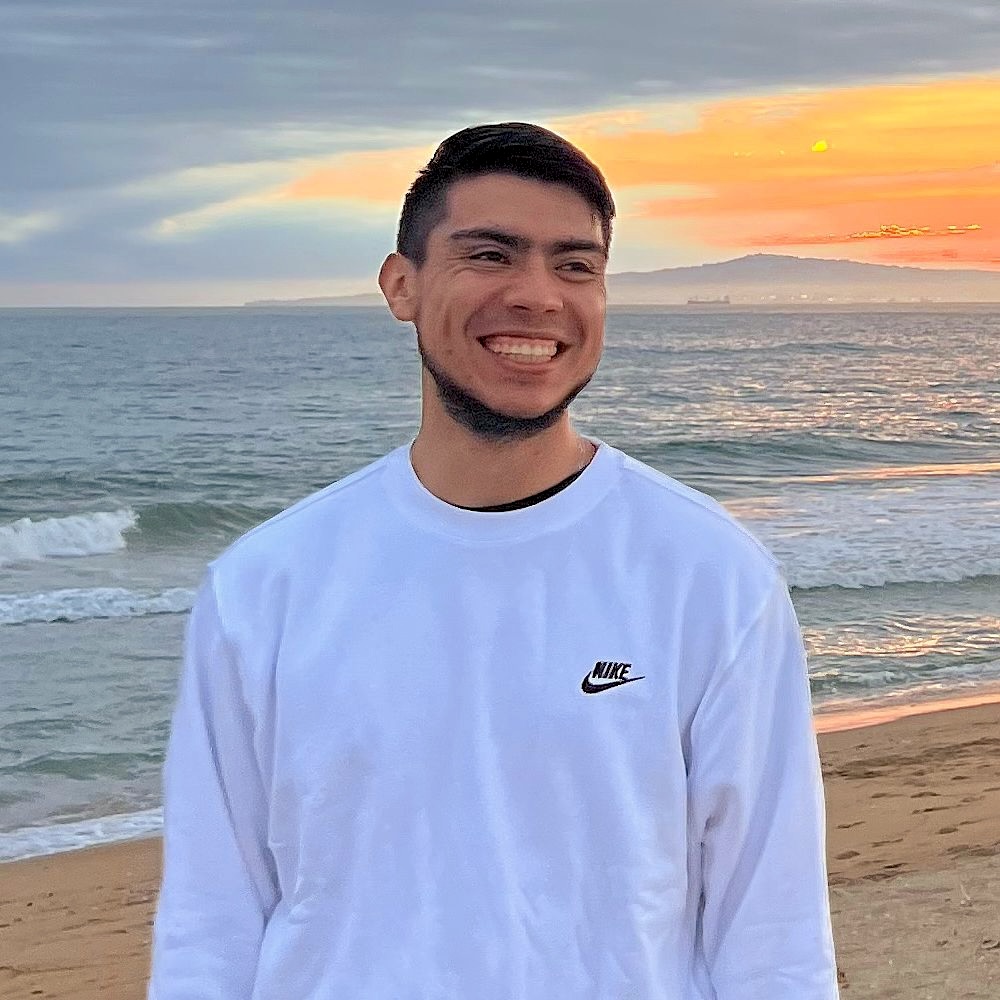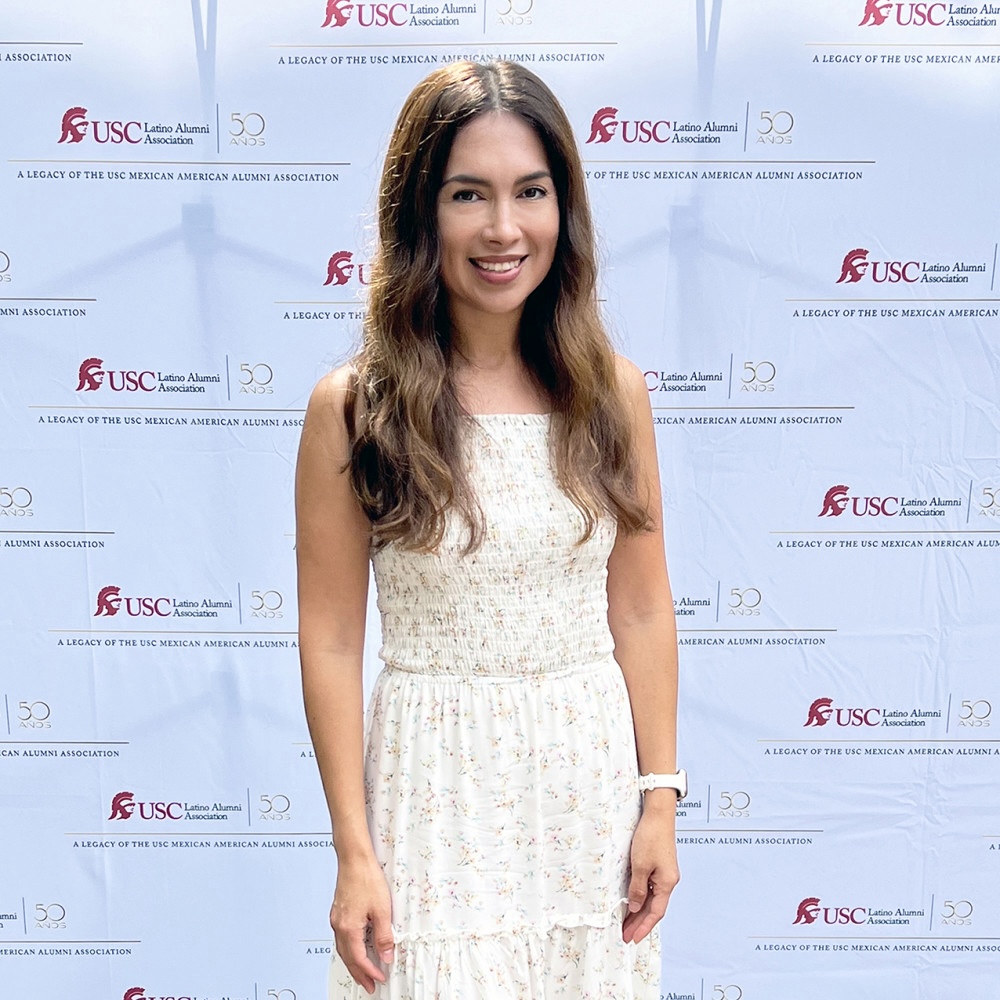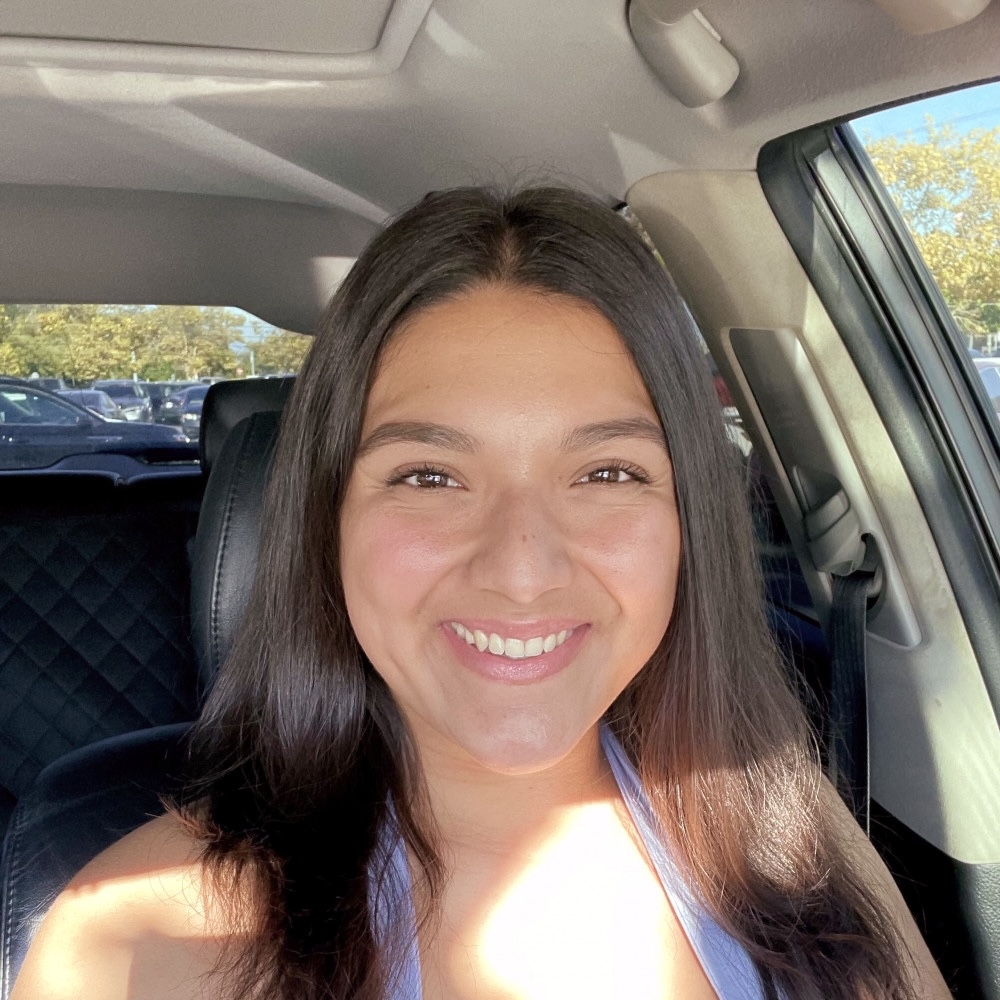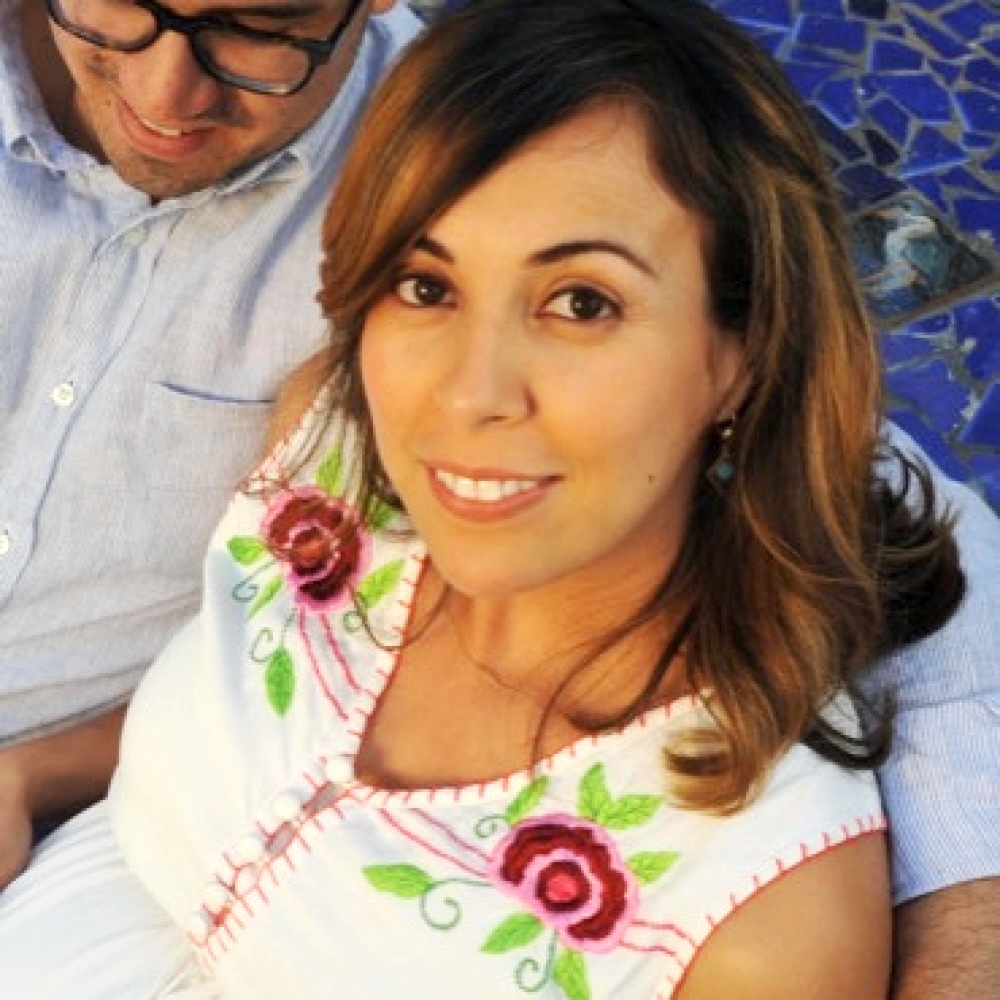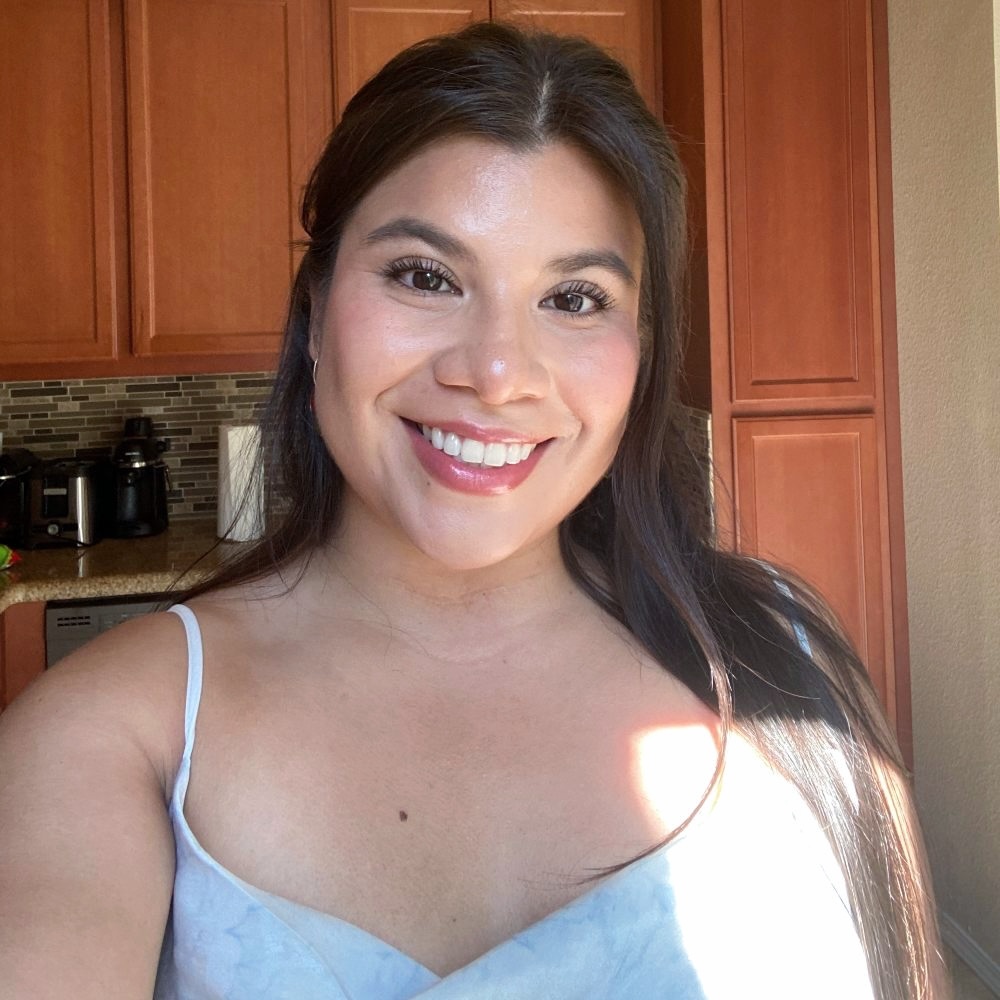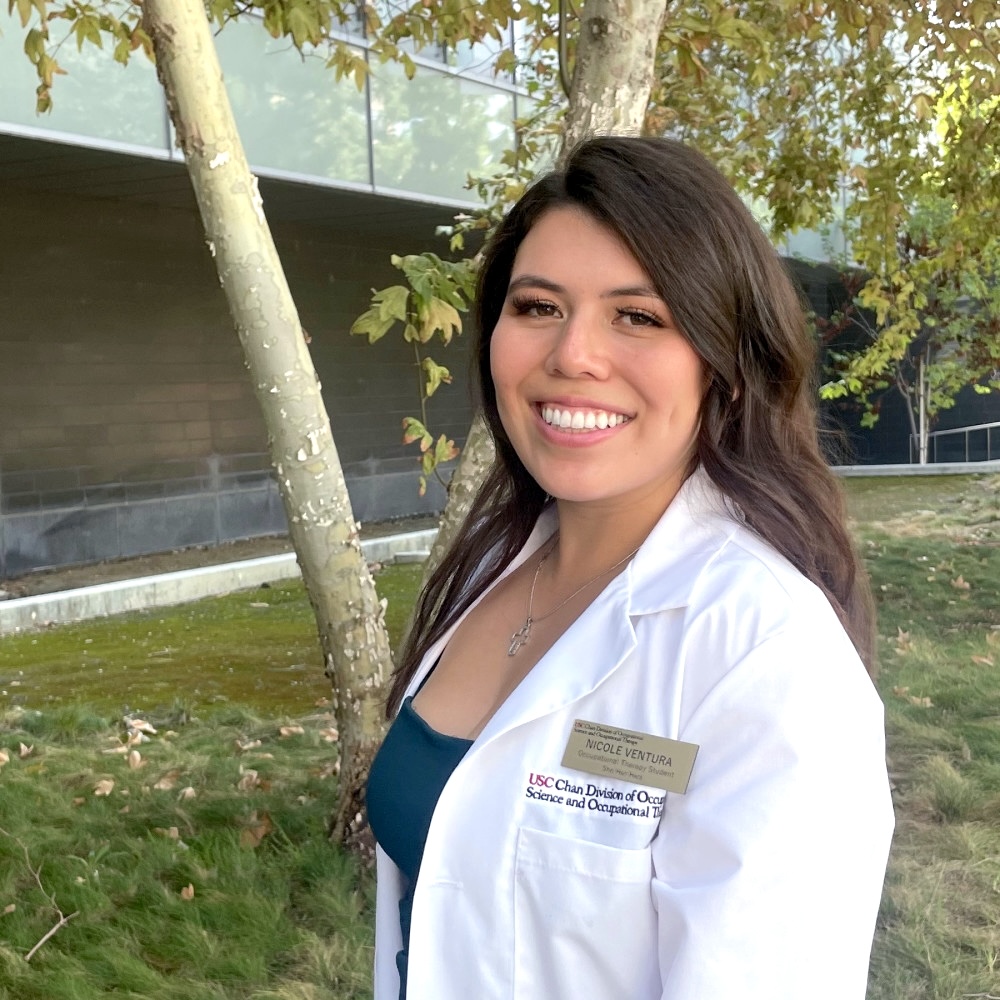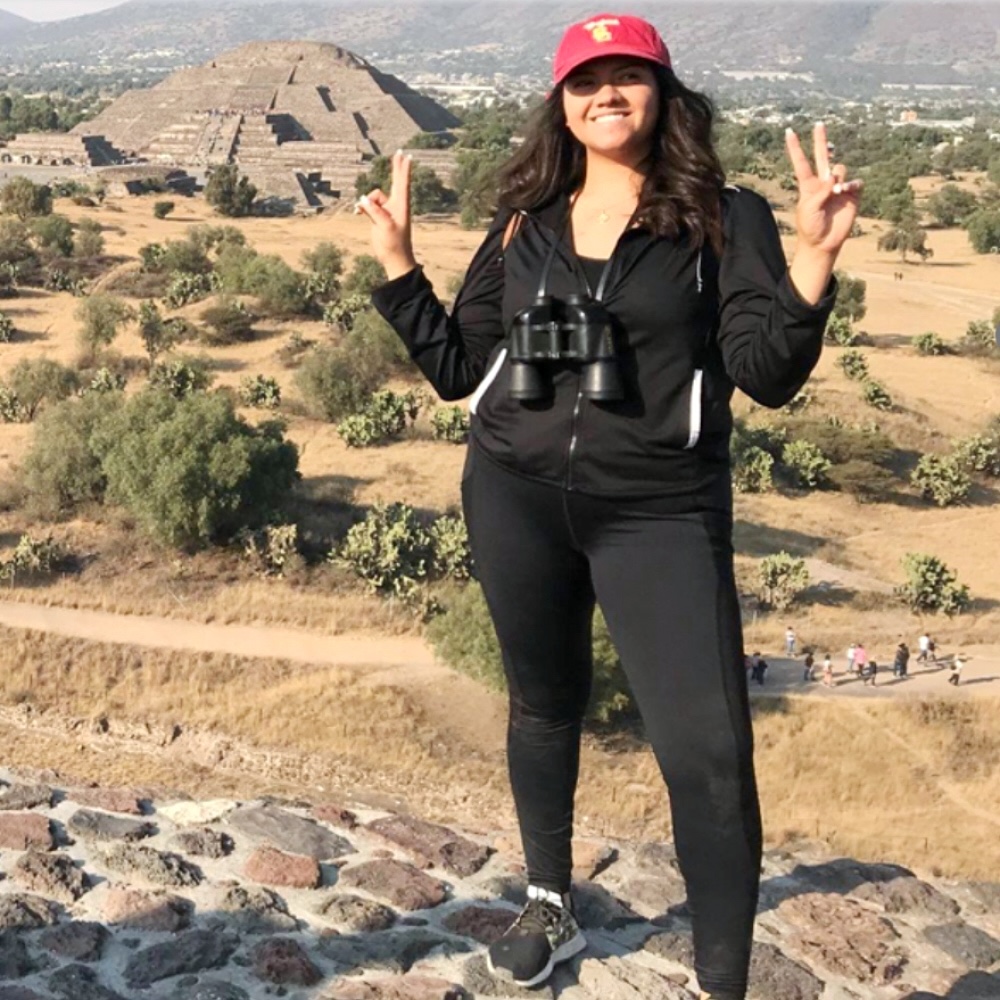Celebrating Latinx/Hispanic Heritage Month
October 12, 2023
To celebrate National Latinx/Hispanic Heritage Month, observed every Sept. 15 to Oct. 15, USC Chan students and faculty members explain what the month personally means, about occupations that are influenced by or represent their heritage, and how their identity influences their everyday participation at USC Chan. ¡Feliz Mes de la Herencia Latinx/Hispana!
Diversity, Access, Equity Faculty Students
Tossho Alba
This month holds great significance to me, as it’s a time to celebrate and honor our rich culture, especially considering my diverse heritage. My mother is from El Salvador and my father is from Mexico, so it’s a moment to appreciate the unique blend of traditions and values from both countries for myself. It reminds me of the resilience and the dedication our community brings to every aspect of life.
An occupation that I enjoy is spending quality time with my family, such as enjoying weekend get-togethers, which resonates deeply with my Hispanic heritage. It is influenced by both Mexican and Salvadoran traditions. Family bonds are at the core of our culture, and these traditions keep our connections strong.
My identity is shaped by both my Salvadoran and Mexican roots, and will play a crucial role in my future career as an occupational therapist. It will enable me to connect on a deeper level with individuals who share a similar background, whether they’re Salvadoran, Mexican or from any Hispanic background. This understanding can bridge the gaps in the healthcare field and provide comfort to individuals who are genuinely thrilled to have someone who understands their cultural perspectives and needs.
Maria Rodriguez
As a Mexican-American woman, Latinx/Hispanic Heritage to me means acknowledging, learning and celebrating diversity in a way that is special to you. During this month we get to take a walk into each beautiful heritage and see/hear more about Latinx/Hispanic heritages; I love it!
A special occupation my family and I participate in is low rider car shows in the Bay Area. We get to celebrate the beauty of our culture through our low riders, whether it be details in the interior or art on the exterior. Being part of the low rider community has heavily influenced my Latinx/Hispanic culture by expanding my view on art in our heritage, and connecting with people with the same appreciation of what these cars represent to each owner and the community.
My Latinx/Hispanic identity will influence my future practice as an OT in many ways, specifically by being able to appreciate and learn. There’s always something we can learn from each other. While I have an open heart, treating every identity will come with knowing the importance of the heritage we share, and I believe with that alone, I can provide the best care possible.
Andres Beltran Soto
Funny enough, I never thought about Hispanic Heritage Month being so important and influential in American society. However, when I moved to the United States, I realized how meaningful it is to celebrate our culture and heritage, since it allows us to look back at our families and appreciate their sacrifice, effort and bravery here in the US. It also gives us a reason to be proud of who we are, not just as individuals but as a community that is continuously growing stronger, especially in California.
My everyday life is highly influenced by my Colombian heritage in a way that almost everything I do, on my own and with my family, comes directly from the habits my parents learned from my grandparents. Some of these activities include drinking Cafecito in the morning, preparing a traditional Colombian dish once a week and celebrating all accomplishments made by Colombians, whether they are singers, athletes, et cetera.
I believe that my Hispanic heritage will have a positive influence on my future practice as an occupational therapist by providing appropriate healthcare services for Spanish-speaking communities and creating a safe space for those individuals in my community who feel they do not have representation in the medical field. Additionally, I hope to be a motivator for future Hispanic generations to pursue their dreams regardless of how challenging they might seem.
Yadira Domenicucci
Latinx/Hispanic Heritage Month means that my culture is especially valued and celebrated for the contributions that it has brought to American society. As a Mexican immigrant, having a month that recognizes Latinx/Hispanic cultures is a source of joy and pride every year.
Celebrating Día de Muertos [The Day of the Dead] is one of my favorite traditional Mexican occupations. Every year, from the night of Nov. 1 to the early morning of Nov. 3, my family and I welcome back the souls of our deceased relatives. The Aztecs and other pre-Hispanic cultures held a cyclical view of the universe and saw death as an integral part of life. On Día de Muertos, the border between the spirit and the material world dissolves, and the souls of the dead briefly return to the living world. My family offers our guests of honor, the souls of our ancestors, their favorite drinks, foods and other offerings at our ofrenda [home altar]. We party, pray and share our favorite stories about our beloved deceased. I am pleased to continue this pre-Hispanic tradition with my two daughters, who love setting the colorful ofrenda.
My Latinx/Hispanic identity will influence my future practice as an occupational therapist by giving me a bold understanding of cultural differences and being a strong supporter and advocate for the rights of minorities, especially the Latinx/Hispanic community.
Jennifer Vera
Hispanic Heritage Month to me means embracing my roots and being proud of my heritage. My family is originally from Mexico, and that part of my identity is essential to who I am. This month is about celebrating the culture, food, music and anything else that comes with identifying as Hispanic/ Latinx. At this point in my life, it feels especially important because I don’t embody the usual characteristics of a graduate student at USC. I hope others pursuing higher education in healthcare use me as an example and see that it is possible to continue breaking barriers, and to do so at an institution where students typically come from affluent backgrounds.
I don’t engage in any special customs or occupations during this month because I try to represent my heritage in my everyday life. For example, my favorite genre of music is reggaeton, and I listen to Spanish music every day. I listen to merengue, bachata, cumbia, rock en español and some banda. So even though not all these genres originated from Mexico, I have a lot of love for Hispanic/Latin music in general. Even at home, I frequently eat Mexican food, or I’ll sometimes watch telenovelas with my mom. I also try to speak Spanish with my parents because language is such an integral part of the culture and it helps me practice, since Spanish isn’t my first language.
I think my Hispanic/Latinx identity is going to have a profound influence on my future practice. I was always taught to be humble, and that stuck with me especially during times that my family lived paycheck to paycheck. Knowing that occupational therapists work with marginalized populations, you have to be willing to address your own biases and collaborate with individuals and their families rather than taking on an all-knowing attitude. People want to feel safe and know their therapists care about them, and I feel that’s something that comes naturally to me. I was always taught to never assume that I’m better than anyone because their character is much more important than where they come from or what they own. My upbringing and values mean that I will always be willing to learn from my clients and listen to their needs, whether that means sharing the Western idea of individualism or having their own ideas about what it means to function in society and participate in their lives.
Deanna Mannarelli
This month means evoking the perspectives of our parents, grandparents and their parents to bring forth the beauty of their cultures. To recognize the loss of some traditions and rejoice in the sanctity of those traditions that remain. To take pride in our contribution to diversity in all its forms: music, art, storytelling, medicinal and culinary.
A week before Christmas we make Nacatamales. It’s a two day affair, and there is always a cousin or wife of a cousin that jumps at the opportunity to learn how to make them. But my abuela is stubborn and she does not like to buy banana leaves. So we drive around different neighborhoods until she spots a banana tree in somebody’s yard. When I was in high school I was embarrassed to ask strangers for their leaves, because I would often get weird looks and a rude “no.” But now I’m proud to knock on strangers’ doors and explain why I would like to have some leaves off their banana tree. A new tradition emerged of gifting two or three Nacatamales to the homes that offered us their banana leaves. Half the fun is trying to find the house again!
My experience of being a Latina has provided me insight to many emotions and fears I believe our students experience, from imposter syndrome, to belonging to self-doubt. It is from this place that I try to make most decisions. Our heritage is an asset to this field and to our community, and if I can help a future Latinx/Hispanic student come to recognize their worth and contribution to occupational therapy, then my work in the Division is even more valuable.
Leslie Jarquin
From my point of view, Latinx/Hispanic Heritage Month signifies an opportunity for celebration, reflection and recognition of the abundant diversity of culture within the Latinx/Hispanic community. It serves as an opportunity to emphasize and pay tribute to the significant contributions, historical significance and important achievements of Latinx and Hispanic individuals throughout diverse areas, embracing art, literature, science, politics and other areas of significance.
As an American-Nicaraguan, a yearly tradition that allows me to proudly represent my Latinx/Hispanic heritage unfolds from late November through Dec. 8. During this period, I engage in cultural activities that are deeply meaningful. The focal point is the creation of altars in honor of the Virgin Mary’s birth, celebrated as La Purisima. On Dec. 8, a spirited event known as La Griteria takes place. It involves walking through the streets, joyfully shouting and singing, while visiting beautifully crafted altars hosted by friends and neighbors. This tradition, rich with cultural significance, is a cherished way for me to connect with my Nicaraguan roots and celebrate the shared values of my community.
As a future occupational therapist, my Latinx/Hispanic identity is a source of cultural insight that shapes my approach to patient care. Understanding the unique cultural nuances and perspectives within the Latinx/Hispanic community allows me to provide more culturally sensitive and tailored interventions. This cultural competency is crucial in fostering trust and effective communication with clients from diverse backgrounds, ultimately enhancing the therapeutic relationship. Embracing my Latinx/Hispanic identity empowers me to advocate for equitable healthcare practices, ensuring that the interventions I design consider the cultural context and individual needs of each client.
Nicole Ventura
Latinx/Hispanic Heritage month to me means honoring my Mexican and Salvadoran roots. I’m proud of where my family comes from, and all the traditions they have passed down. Latinx/Hispanic heritage month is about celebrating and sharing the beautiful culture.
Some occupations that I enjoy are listening to Latinx artists and going to Latinx concerts/festivals as well as watching novelas with my grandmas. A tradition that my family has is that we always have tamales for Christmas.
Lidia Fernandez Moreno
Latinx/Hispanic Heritage Month to me means a chance to celebrate and recognize my Hispanic heritage. I am from Mexico and I feel really proud to be Mexican. I am glad that during this month everyone else gets to learn and see the beauty of my Hispanic heritage.
The activities and traditions I celebrate that represent my Hispanic heritage are Dia de los Muertos, Christmas Eve and Dia de Los Reyes Magos. For Dia de los Muertos, my family puts up an altar with pictures of our loved ones who have passed away. We also eat Pan de Muerto, which is basically just delicious sweet bread. For Christmas, we cook delicious food and we have posadas throughout the month of December where we eat tamales and hot cocoa, and we come together on Christmas Eve to give each other gifts. For Dia de Los Reyes Magos, we celebrate on Jan. 6 by getting together with family and eating Rosca de Reyes, which is sweet bread with a tiny toy baby inside which signifies Jesus Christ as an infant. Whoever finds the baby inside their bread has to bring food or drink on Feb. 2.
My Hispanic identity influences my future as an occupational therapy practitioner because growing up, my family always celebrated our wins and our losses. We always looked at the bright side and we welcomed everyone into our home. My family has taught me to be respectful, genuine and happy. I believe these are great qualities to have because, as an OT, I want to celebrate my clients’ wins, and I want to motivate them with a smile on my face. I will treat them like family and care for them when they need me the most. Also being bilingual will help me connect to more individuals, and I am grateful for that.
⋯
Next by tag Diversity, Access, Equity ⟩ Faculty ⟩ Students ⟩






